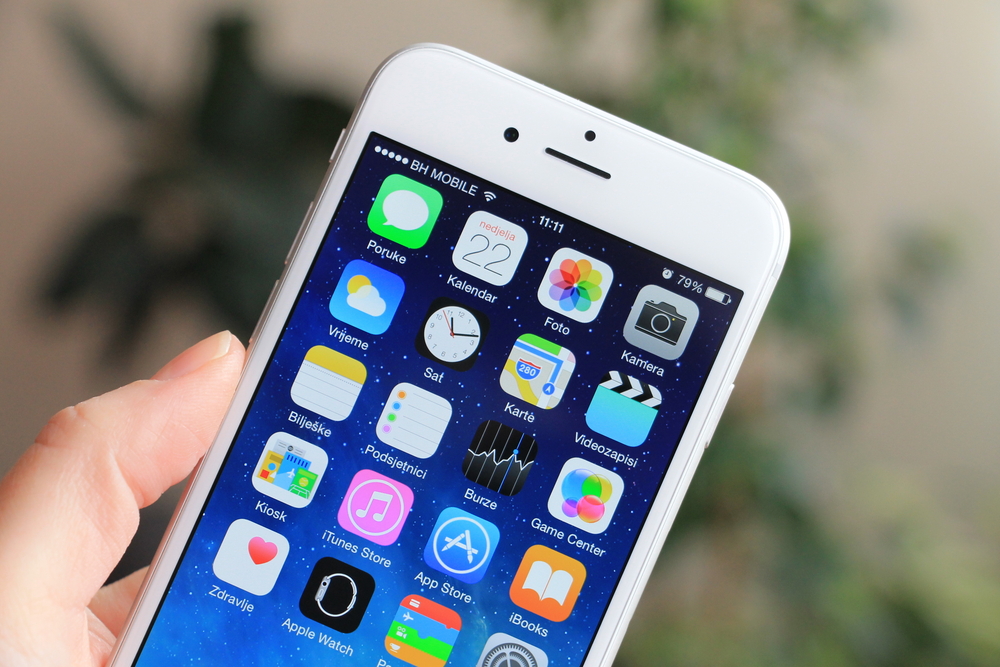
Mastering Mobile App Marketing: Insider Tips and Expert Tricks

In today's digital age, mobile apps have become an integral part of our lives. From ordering food to booking a ride, checking the weather to managing our finances, there seems to be an app for almost everything. With millions of apps available in the app stores, it's crucial for app developers and marketers to have a solid mobile app marketing strategy in order to stand out from the competition. In this article, we will explore some insider tips and expert tricks to help you master the art of mobile Google Play or App Store app marketing.
1. Understand Your Target AudienceBefore diving into any marketing efforts, it's essential to understand your target audience. Who are the users that will benefit from your app? What problem does your app solve for them? Conduct thorough market research to identify your target audience's demographics, interests, and pain points. This information will help you tailor your marketing messages and strategies to effectively reach and engage with your potential users.
2. Optimize Your App Store Listing
One of the most critical aspects of mobile Android or iOS app marketing is optimizing your app store listing. Both the Apple App Store and Google Play Store have algorithms that determine the visibility and ranking of apps. To increase your app's organic visibility, focus on optimizing the app title, keywords, and description. Use relevant keywords throughout your app store listing to ensure your app can be easily discovered when users search for related terms.
3. Leverage App Store Optimization (ASO)
Similar to Search Engine Optimization (SEO), App Store Optimization (ASO) is the process of optimizing your app store listing to improve its visibility and ranking in app store search results. ASO involves various techniques, such as keyword research, localization, optimizing app screenshots and preview videos, and optimizing the app's ratings and reviews. By implementing ASO best practices, you can attract more organic downloads and improve the overall visibility of your app.
4. Create Engaging App Screenshots and Preview Videos
Visuals play a crucial role in convincing potential users to download your app. When browsing through app store listings, users are more likely to be drawn towards apps with compelling screenshots and preview videos that showcase the app's features and functionalities. Invest time and effort into creating visually appealing and informative screenshots and videos that effectively communicate the value of your app to users.
5. Implement App-Install Campaigns
App-install campaigns are a popular mobile app marketing strategy used by many app developers and marketers. These campaigns are designed to drive more installs and downloads for your app. Platforms like Facebook Ads, Google Ads, and Apple Search Ads offer robust targeting options to help you reach your desired audience. By carefully planning and executing app-install campaigns, you can effectively promote your app and acquire new users.
6. Utilize Influencer Marketing
Influencer marketing has become a prominent strategy in the digital marketing space. Collaborating with influencers who have a significant following and a relevant audience can help you promote your mobile iOS or Android app to a wider audience. Partnering with influencers to create sponsored content, reviews, or giveaways can generate awareness and drive downloads for your app. Ensure that you choose influencers whose audience aligns with your target demographic for maximum impact.
7. Encourage User Reviews and Ratings
Positive user reviews and ratings not only provide social proof for your app but also impact its search ranking within the app stores. Encourage your users to leave reviews and ratings by implementing in-app prompts and incentives, such as offering rewards or exclusive features. Respond to users' feedback promptly and strive to improve their experience, as this will not only increase user satisfaction but also attract more potential users.
8. Leverage Social Media Channels
Social media platforms like Facebook, Instagram, Twitter, and LinkedIn offer a vast potential for app promotion. Create dedicated social media accounts for your app and regularly share engaging and informative content related to your app's features, updates, and user testimonials. Leverage social media advertising to target specific demographics and drive traffic to your app store listing or app landing page.
9. Implement App Retargeting
App retargeting is a powerful strategy that allows you to re-engage users who have already interacted with your app but have not converted into loyal users. By implementing app retargeting campaigns, you can remind these users about the value of your app and encourage them to take further action. This strategy can include personalized push notifications, in-app messages, or targeted ads to remind users to complete a purchase, use a specific feature, or sign up for a premium subscription.
10. Measure and Analyze Your App Marketing Efforts
To fine-tune and optimize your mobile app marketing strategy, it's crucial to measure and analyze the effectiveness of your efforts. Utilize app analytics tools like Google Analytics for mobile App Store or Google Play app s, Firebase Analytics, or Mixpanel to gain insights into user behavior, app usage, and conversion rates. Monitor key performance indicators (KPIs) such as downloads, user engagement, retention rates, and average revenue per user (ARPU). By analyzing the data, you can identify areas for improvement and make data-driven decisions to enhance your app marketing efforts.
Frequently Asked Questions:
Q1: How long does it take to see results from mobile app marketing efforts?A1: The timeline for seeing results from mobile app marketing efforts can vary based on various factors, including the competitiveness of the industry, the quality of your app, the effectiveness of your marketing strategies, and the size of your target audience. Generally, it takes time to build awareness and acquire users. Continuous monitoring, tracking, and optimization of your marketing efforts will help you achieve better results over time.
Q2: Is app store optimization (ASO) a one-time process?
A2: No, app store optimization is an ongoing process. It requires constant monitoring and adjustment to keep up with search algorithm updates and changing user behaviors. Regularly analyzing keyword performance, testing different creatives, and staying updated with the latest ASO best practices are essential to maintain and improve your app's visibility in the app stores.
Q3: How can I improve user retention for my mobile app?
A3: User retention is critical for the long-term success of your mobile app. To improve user retention, focus on delivering an exceptional user experience, regularly update your app with new features and bug fixes, and actively engage with your users through in-app messages or push notifications. Understanding your users' preferences and pain points can help you tailor your app to meet their needs, creating a more valuable and enjoyable experience.
Q4: How can I measure the effectiveness of my app install campaigns?
A4: Measuring the effectiveness of your app install campaigns is crucial to optimize your marketing efforts. App store analytics and tracking platforms, such as Appsflyer or Adjust, can provide valuable insights into the performance of your campaigns, including conversions, cost per install (CPI), retention rates, and lifetime value (LTV) of users acquired through campaigns. By analyzing these metrics, you can identify the most effective channels and optimize your ad spend accordingly.
Q5: What are some cost-effective ways to promote my mobile app?
A5: While paid advertising is effective, there are also cost-effective ways to promote your mobile app. Leveraging organic channels like social media, content marketing, SEO-optimized blog posts, app review sites, and influencer collaborations can help generate awareness and attract potential users without a substantial financial investment. Implementing referral programs or partnering with other complementary apps for cross-promotion can also be cost-effective strategies for driving downloads and user acquisition.
In conclusion, mobile app marketing requires a strategic and multi-faceted approach to maximize visibility, attract users, and drive downloads. By understanding your target audience, optimizing your app store listing, leveraging app store optimization techniques, and implementing various marketing strategies like influencer marketing and app-install campaigns, you can increase your app's visibility and ultimately achieve your business goals. Constantly measure and analyze your marketing efforts to refine your strategies, and remember to prioritize user experience to drive long-term success for your mobile app.
Other useful resources
- https://www.appguru24.com/ios-app-promotion/